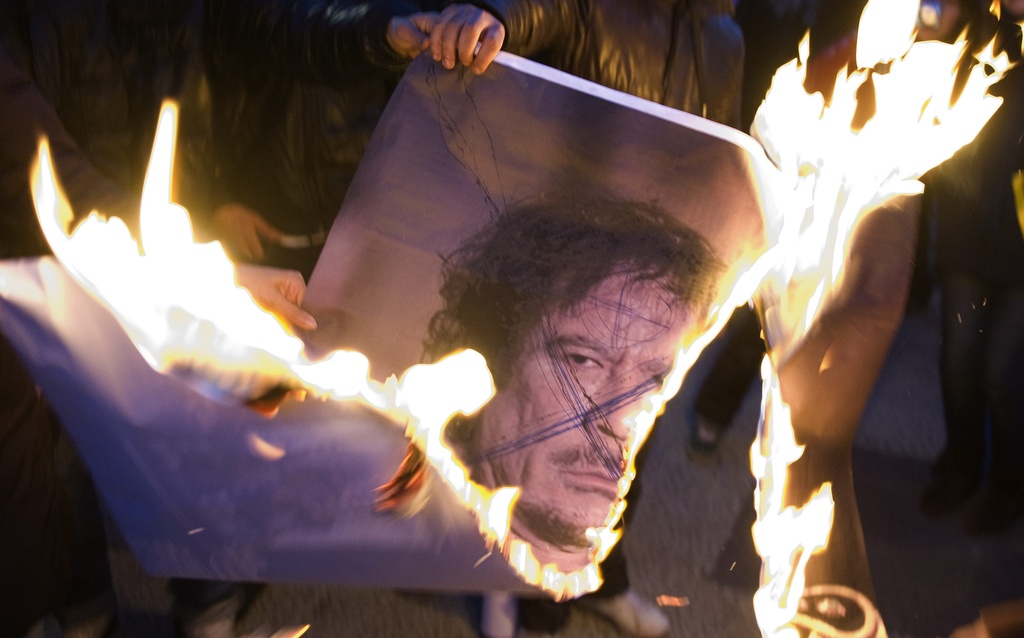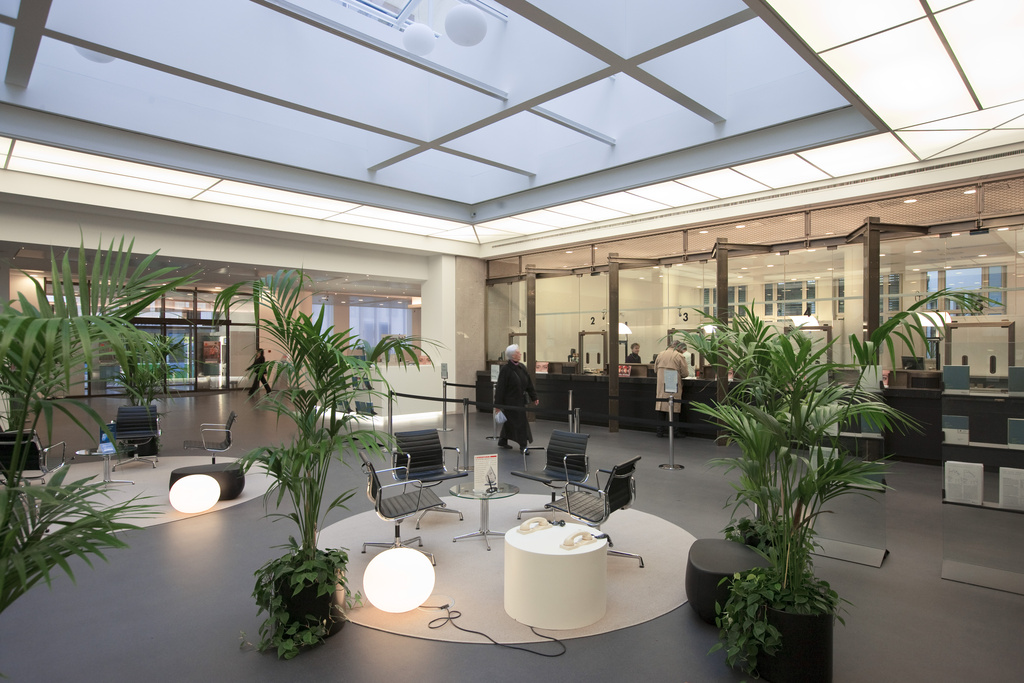Switzerland freezes Gaddafi assets

Switzerland announced on Thursday evening that it is freezing any assets belonging to Libyan leader Moammar Gaddafi and his entourage.
The foreign ministry said the decision had come into force immediately.
“To pre-empt any misuse of state funds, the cabinet today decided to block all assets in Switzerland belonging to Moammar Gaddafi and his entourage with immediate effect,” a ministry statement said.
“The sale of the property of these persons – in particular real estate – or disposing of it in any way is forbidden as of now.”
The freezing order is valid for three years, the statement said.
The Libyan foreign ministry on Thursday responded to the move by denying the country had any money in Swiss banks. It threatened legal action against Switzerland for what it said were “unsubstantiated claims”.
“We demand … that Switzerland prove that the brother leader has funds or accounts in its banks or in any other bank in the world,” the Libyan foreign ministry said in a statement, adding that the Swiss move to freeze funds demonstrated “the degree of animosity towards Libya and its leader”.
Estimations
During the diplomatic row between Switzerland and Libya which broke out in 2008 over the arrest of one of Gaddafi’s sons in Geneva, billions of francs worth of Libyan deposits were withdrawn from Swiss banks as part of Libyan retaliation.
The Swiss National Bank says that only about SFr 630 million ($680 million) is left from what were once holdings of SFr5.7 billion.
It is unclear what proportion of this might belong to Gaddafi or any of the other people named by the Swiss government.
The list contains 28 names in addition to Gaddafi himself. They include his wife, sons and daughters. Also on the list are other relatives and heads of various national companies.
Pressure
Earlier this year Switzerland froze the assets of the former president of Tunisia, Zine al-Abedine Ben Ali, and of Egypt, Hosni Mubarak, but in both cases waited until they had been overthrown – even though, in the case of Egypt, the order came into force only 30 minutes after Mubarak’s departure from power was announced.
There had already been calls for the immediate freezing of Gaddafi’s money from Swiss non-governmental organisations and from the Social Democrat party.
“Switzerland must take sides with the majority of the population, not with autocratic despots and tyrants,” the Social Democrats wrote in a statement issued earlier on Thursday.
“The law against money laundering is a failure if the assets of potentates can only be blocked once they have been toppled,” the statement said.
The Alliance Sud umbrella group of Swiss development NGOs welcomed the decision to block the funds, saying the government had “for once” acted “with foresight” by acting against a leader still in power.
Condemnation
In its statement explaining its action, the foreign ministry said it was following the situation in Libya closely.
“The people who in recent days have been rebelling against the Tripoli regime in the streets of Libya and demanding their democratic rights, have been risking their lives. The [Swiss] government is very conscious of their courage,” the statement said.
It expressed Switzerland’s condolences to the families of the many people who had been killed in the violent attempts taken to put down the demonstrations.
Relations between Switzerland and Libya have been tense since the brief detention of Moammar Gaddafi’s son Hannibal in Geneva in 2008, on suspicion of mistreating two servants.
The arrest triggered retaliation from Libya; among other things, two Swiss businessmen were prevented from leaving the country and one was eventually jailed.
Most Libyan assets were withdrawn from Swiss banks as part of the retaliation.
The two sides agreed in 2009 to establish an arbitration tribunal to examine the “Hannibal Gaddafi affair”.
This was confirmed in 2010, but it was only at the beginning of February 2011 that Libya announced that two sides had agreed on a chairman.
On February 21, Switzerland announced that the preparatory work of the tribunal had been suspended, in connection with the upheavals in Libya.
Former British ambassador to Tripoli Oliver Miles told two Swiss newspapers on February 24 that thanks to what is currently happening, for the Swiss, “the Libya problem has been settled”.
He said that even if Gaddafi managed to stay in power – which he doubted – he would be greatly weakened, and would have “problems other than Switzerland”.
Because most Swiss left Libya after 2008, there are now very few in the country, most of them dual nationals.
The embassy has so far helped four Swiss citizens to leave.

In compliance with the JTI standards
More: SWI swissinfo.ch certified by the Journalism Trust Initiative












You can find an overview of ongoing debates with our journalists here . Please join us!
If you want to start a conversation about a topic raised in this article or want to report factual errors, email us at english@swissinfo.ch.